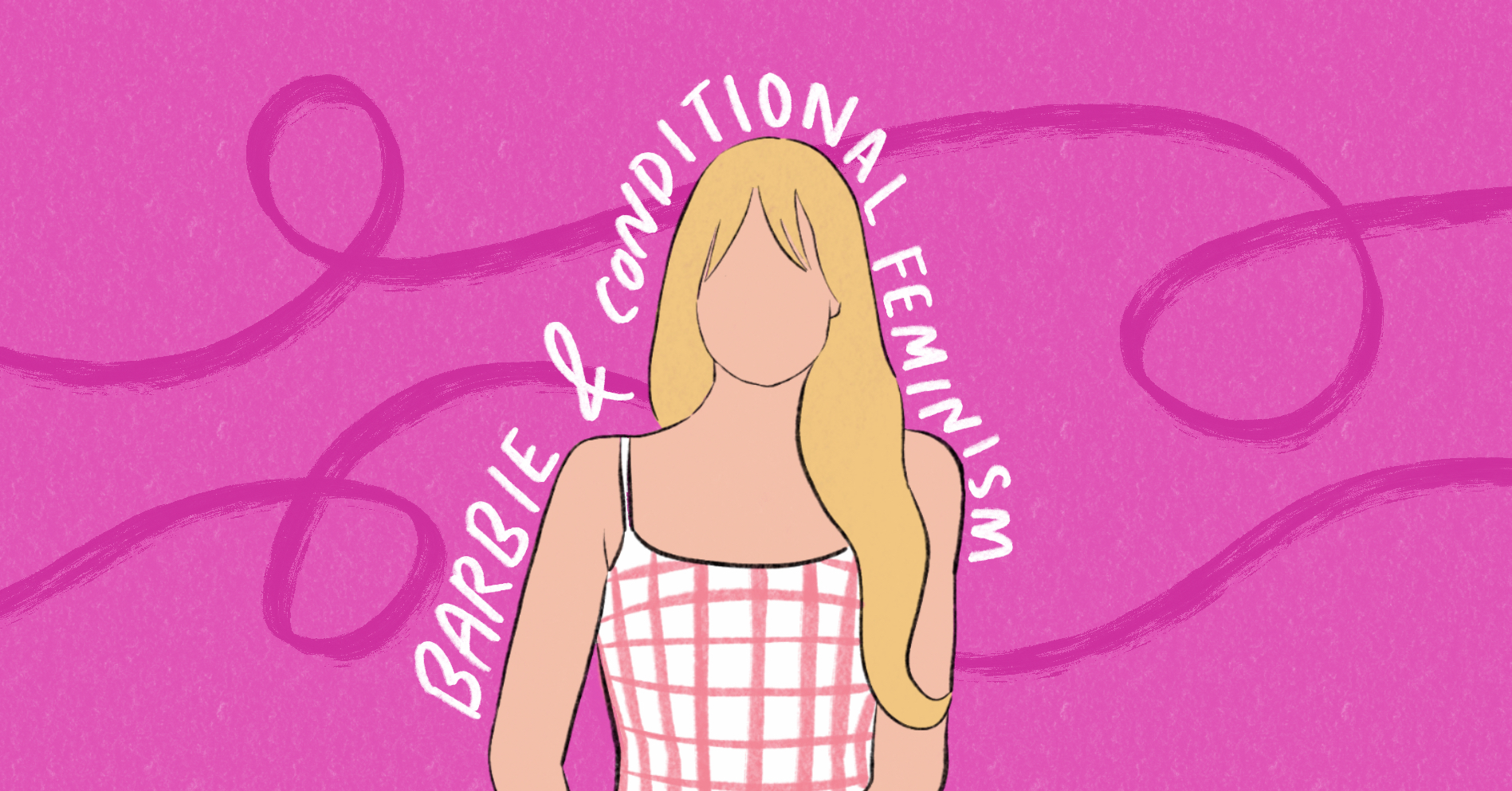Feminism beyond the big screen: examining the authenticity of your advocacy
What kind of woman will you fight for?
With the Oscars arriving on March 10, movie-and-TV-show lovers alike sit in anticipation. Fans scour nomination lists across the Internet to get a sense of which of their favourite actors, directors, and other cinematic films have climbed their way to the top of box office charts and critic lists in 2023. Alongside big-name films such as Oppenheimer and Killers of the Flower Moon, motion picture Barbie is up for eight separate Oscars.
The film is nominated for Best Picture, along with actors Ryan Gosling and America Ferrera in line for Best Supporting Actor and Actress, respectively, as well as multiple songs from the film being nominated for Best Original Song. Aside from the film’s multiple opportunities to win an Oscar, lead actress Margot Robbie and director Greta Gerwig are absent from the nominations in their respective roles. Fans of the film are outraged by the absence of nominations for the two women, who are understood to be the biggest contributors to the movie’s success.
With Barbie’s main theme being centered around feminism, the validity of this nomination outrage is easily questioned. While fans openly advocate for Robbie and Gerwig, the same emphasis on feminism isn’t always seen in relation to other global issues. Currently, one of the most important global issues is the genocide taking place in Palestine.
Israeli women who were sexually abused during their capture by the Hamas in October sparked articles and other feminist activist conversations amongst the Western world. And while the sexual abuse allegations against Israeli hostages are unverified and denied by the family of one hostage, UN experts and the World Organization Against Torture ( OMCT) are documenting reports of rape and sexual abuse within Israeli prisons against Palestinian women and girls, with cases dating back to 2002 and before. So why are these same self-proclaimed “feminists” silent in the fight for Palestinian women?
Mothers in Gaza have been displaced while their children are ripped away from them forever. Pregnant women do not have the resources to keep themselves, let alone the baby they are carrying, healthy or even alive. Young girls and women have no way of managing menstruation, and many girls don’t even have their mothers around to aid them.
What about the mothers in the Congo? Extensive fighting has put women in an even more vulnerable position than they were already in before. Mothers are facing countless incidents of sexual violence after being displaced and separated from their children. Where are the feminist voices of Barbie fans for the rape victims of soldiers in Sudan? Gendered violence has been manipulated into a weapon of war, and oppressed women are the ones facing the repercussions of it.
The truth about the situation is that our security in the Western world distances us from the severity of global conflicts. It is easier to have a strong opinion on the Oscars nomination list because it has more significance in our everyday lives. We watch these movies, and we relate to their characters or songs. The effects of the genocide in Palestine, Congo, Sudan, and other distant countries do not directly impact us on a personal level, making it less obvious that we need to empathize with the female victims.
Although this may be considered an “explanation” as to why many feminist voices are quiet in the fight for marginalized women, it does not justify silence. Being that we are safe and protected, it is our duty as feminists to fight for those who cannot fight alone. We are the ones who have the resources and capital to work toward the liberation of oppressed women, and we must act. You cannot call yourself a feminist if you do not fight for the rights and safety of all women in the world. Feminism is not conditional, and it must be displayed consistently and universally.
Associate Opinion Editor (Volume 50) —Tia is a third-year student completing a double major in Anthropology and Sociology. She uses The Medium as an outlet to do some creative writing that can't be expressed through the countless academic papers she writes during the semester. When she's not writing for the opinion section, you can find Tia getting gains in the gym, working at the campus pool, or volunteering with UTM ECSpeRT!


